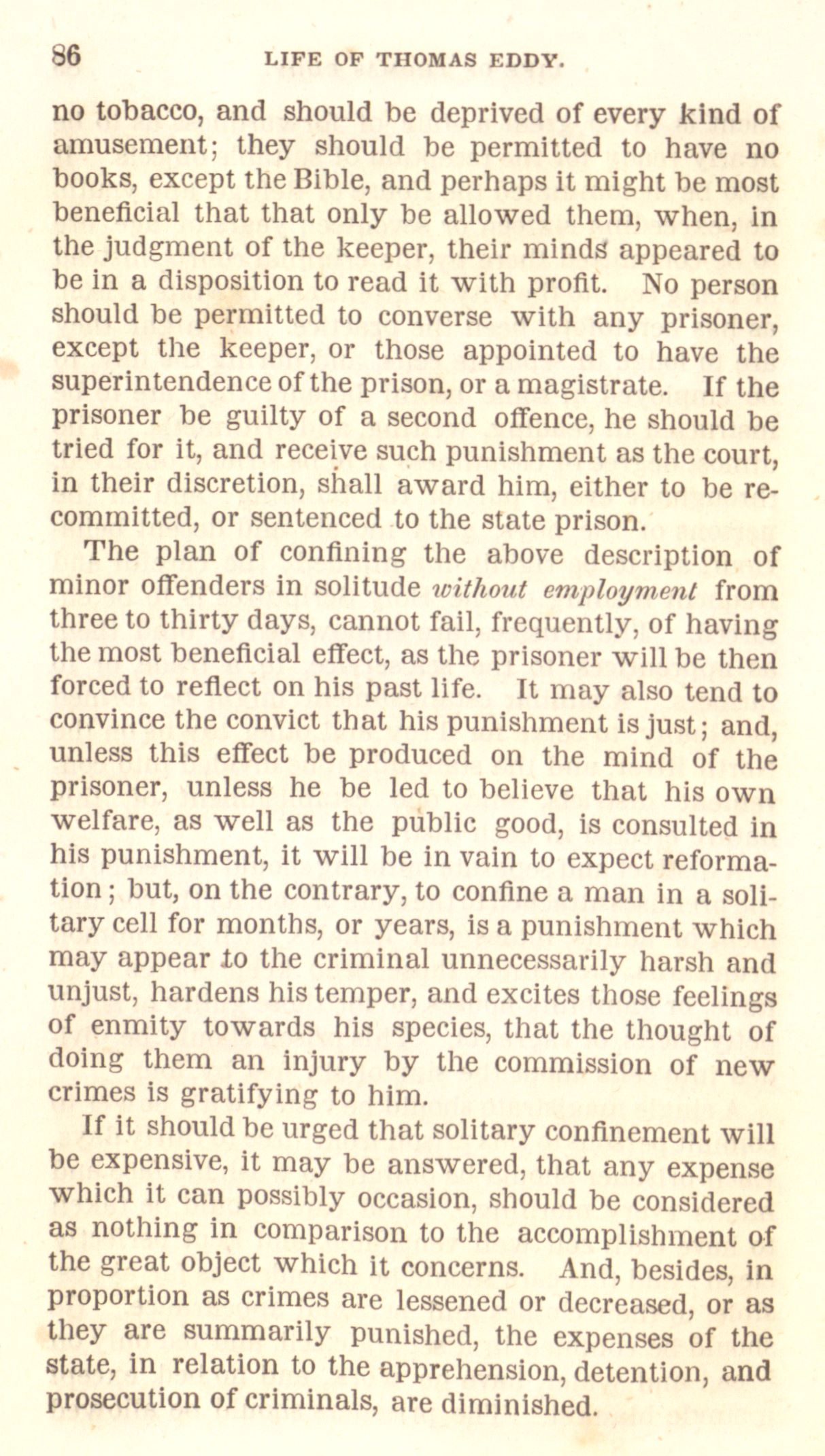no tobacco, and should be deprived of every kind
of
amusement; they should be permitted to have no
books,
except the Bible, and perhaps it might be most
beneficial that that
only be allowed them, when, in
the judgment of the keeper, their
minds appeared to
be in a disposition to read it with profit. No
person
should be permitted to converse with any prisoner,
except the keeper, or those appointed to have the
superintendence
of the prison, or a magistrate. If the
prisoner be guilty of a
second offence, he should be
tried for it, and receive such
punishment as the court,
in their discretion, shall award him,
either to be re-
committed, or sentenced to the state prison.
The plan of confining the above description of
minor offenders in
solitude without employment from
three
to thirty days, cannot fail, frequently, of having
the most
beneficial effect, as the prisoner will be then
forced to reflect
on his past life. It may also tend to
convince the convict that his
punishment is just; and,
unless this effect be produced on the mind
of the
prisoner, unless he be led to believe that his own
welfare, as well as the public good, is consulted in
his
punishment, it will be in vain to expect reforma-
tion ; but, on the
contrary, to confine a man in a soli-
tary cell for months, or
years, is a punishment which
may appear to the criminal
unnecessarily harsh and
unjust, hardens his temper, and excites
those feelings
of enmity towards his species, that the thought
of
doing them an injury by the commission of new
crimes is
gratifying to him.
If it should be urged that solitary confinement will
be expensive,
it may be answered, that any expense
which it can possibly
occasion, should be considered
as nothing in comparison to the
accomplishment of
the great object which it concerns. And, besides,
in
proportion as crimes are lessened or decreased, or as
they
are summarily punished, the expenses of the
state, in relation to
the apprehension, detention, and
prosecution of criminals, are
diminished.

